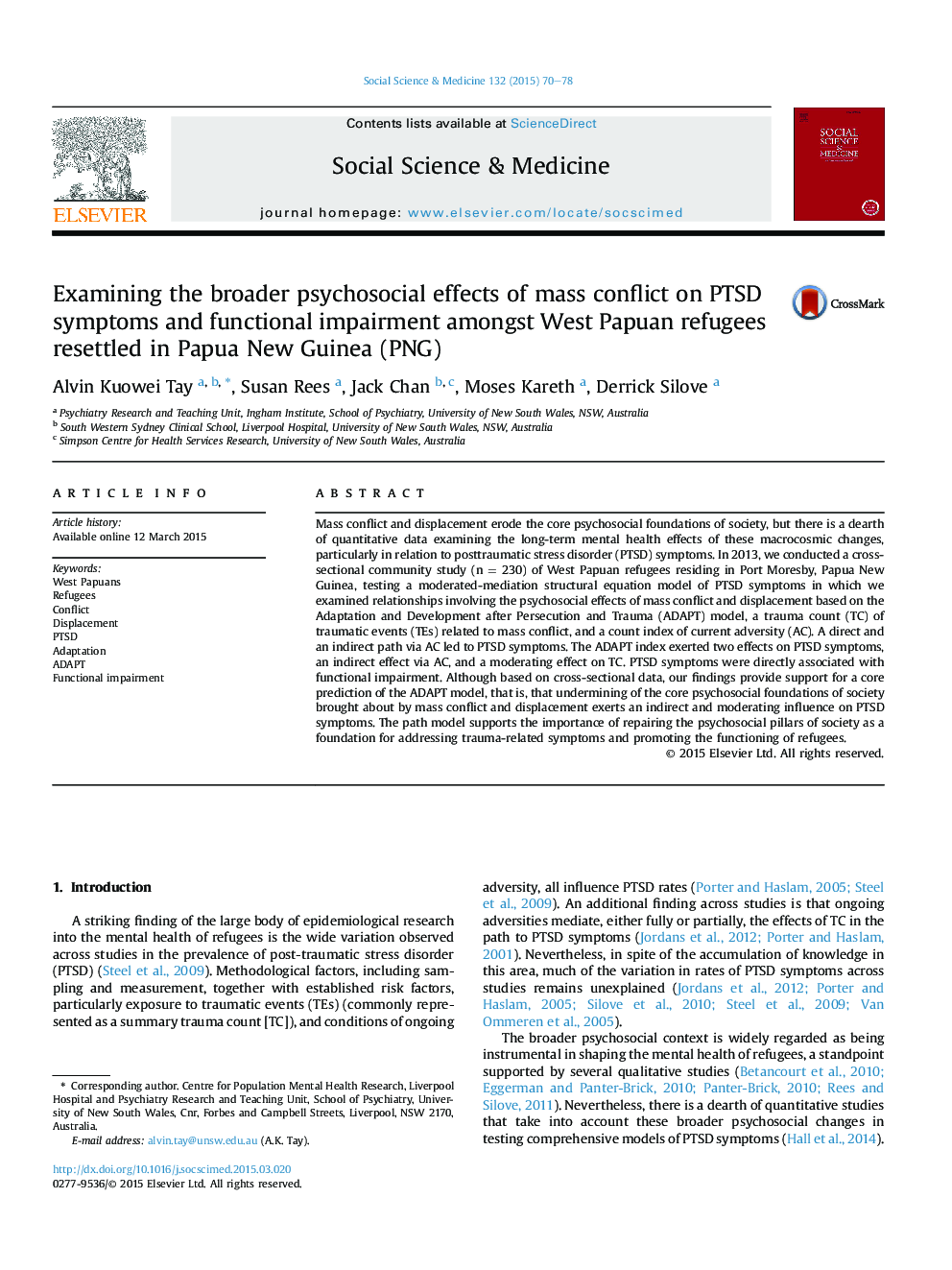| Article ID | Journal | Published Year | Pages | File Type |
|---|---|---|---|---|
| 7332720 | Social Science & Medicine | 2015 | 9 Pages |
Abstract
Mass conflict and displacement erode the core psychosocial foundations of society, but there is a dearth of quantitative data examining the long-term mental health effects of these macrocosmic changes, particularly in relation to posttraumatic stress disorder (PTSD) symptoms. In 2013, we conducted a cross-sectional community study (n = 230) of West Papuan refugees residing in Port Moresby, Papua New Guinea, testing a moderated-mediation structural equation model of PTSD symptoms in which we examined relationships involving the psychosocial effects of mass conflict and displacement based on the Adaptation and Development after Persecution and Trauma (ADAPT) model, a trauma count (TC) of traumatic events (TEs) related to mass conflict, and a count index of current adversity (AC). A direct and an indirect path via AC led to PTSD symptoms. The ADAPT index exerted two effects on PTSD symptoms, an indirect effect via AC, and a moderating effect on TC. PTSD symptoms were directly associated with functional impairment. Although based on cross-sectional data, our findings provide support for a core prediction of the ADAPT model, that is, that undermining of the core psychosocial foundations of society brought about by mass conflict and displacement exerts an indirect and moderating influence on PTSD symptoms. The path model supports the importance of repairing the psychosocial pillars of society as a foundation for addressing trauma-related symptoms and promoting the functioning of refugees.
Related Topics
Health Sciences
Medicine and Dentistry
Public Health and Health Policy
Authors
Alvin Kuowei Tay, Susan Rees, Jack Chan, Moses Kareth, Derrick Silove,
